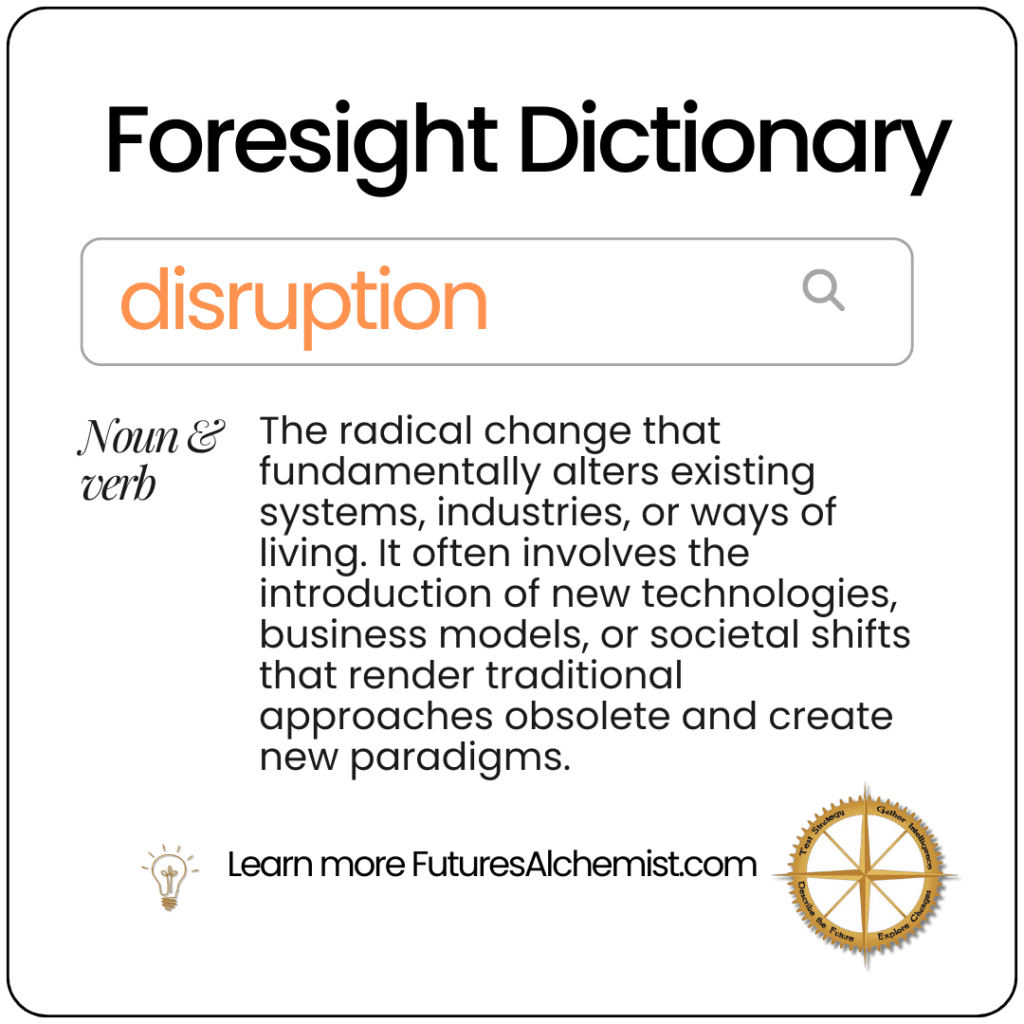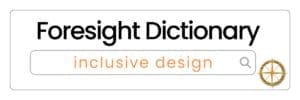

Definition
In futures thinking and foresight, disruption refers to a radical change that fundamentally alters existing systems, industries, or ways of living. It often involves the introduction of new technologies, business models, or societal shifts that render traditional approaches obsolete and create new paradigms.
Example
The Car
A clear historical example of disruption is the introduction of the automobile in the early 20th century. This innovation disrupted multiple industries, including horse-drawn carriage manufacturers, blacksmiths, and hay farmers. It also led to profound changes in urban planning, energy consumption, and social mobility.
Ask yourself
- What emerging technologies or trends have the potential to disrupt my industry or field?
- How might current disruptions evolve and impact society in the long term?
- What are the second and third-order effects of a potential disruption?
- How can we prepare for and adapt to disruptive changes?
- Are there opportunities to be a disruptor rather than the disrupted?
Tools
- Three Horizons Framework: Helps visualise and plan for transformative change over time.
- Scenario Planning: Develops multiple possible futures to explore potential disruptions.
- PEST Analysis: Examines Political, Economic, Social, and Technological factors that could lead to disruption.
- S-Curve Analysis: Helps identify when mature technologies might be ripe for disruption.
Tech companies Rise and fall
And cause their local disruptions




